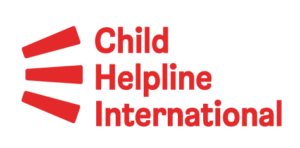The 16 Days of Activism against Gender-Based Violence (GBV) is a yearly campaign organised by international civil society. It aims to highlight the continued role of GBV as the most pervasive and widespread human rights violation worldwide and to galvanise action to prevent and respond to these crimes.
Like every year, the campaign kicked off on 25 November, the International Day for the Elimination of Violence against Women and ends on 10 December, International Human Rights Day. And this year, like every year, these 16 days are taking place while conflicts rage across the planet, bringing with them increased levels of GBV and preventing millions from enjoying the human rights to which they are entitled.
Unfortunately, Sexual and Gender-Based Violence (SGBV), meaning any harmful act (including sexual) perpetrated against a persons’ will has been a feature of global armed conflict as far back as our historical recordings, back even to the Roman and Hebrew wars where invaders were called to: “Rape, loot, and pillage.”
While sexual and gender based violence is a recognised phenomenon during times of conflict, it has not always received the mainstream political or legal attention it deserves. In fact, the first time that sexual violence was prosecuted as a war crime was at the International Tribunals on War Crimes in Rwanda and Yugoslavia in the late 1990s. These tribunals allowed SGBV to be recognised as a crime against humanity, as a crime of torture and of genocide. This was an important first step in international law towards recognising the physical and psychological harm SGBV inflicts and the extent to which SGBV can devastate communities, families, and individuals. It was also a recognition of the fact that SGBV is not an inevitable feature of armed conflict: it can be prevented.
Despite this progress, there is still a lot to be done to stop the perpetration and impunity of SGBV in conflict. We see it now in the war in Ukraine; reports by NGOs, international organisations, independent monitoring missions and Ukrainians themselves, indicate SGBV crimes are mounting. Alarm bells are ringing about accounts of rape, sexual abuse and exploitation, trafficking, physical assaults against LGBTQIA+ people and gender-based discrimination suffered in Ukraine while fleeing from the war, in transit, and upon arrival to their destination in countries that have an obligation to protect them. Children and teenagers are especially vulnerable to SGBV: teenage girls, in particular, have been found to be targeted for sexual exploitation by traffickers waiting on the borders of Ukraine, and by individuals on Facebook groups ‘volunteering’ to host Ukrainian refugees… as long as they were under the age of 25 and female.
The war in Ukraine, sadly, is just one example of the way in which SGBV continues to affect communities across the world. The WHO estimates that across their lifetime, one in every three girls and women are subjected to physical or sexual violence – and this figure doesn’t include other forms of SGBV, including sexual harassment, traditional harmful practices like Female Genital Mutilation and sexual exploitation to name a few.
This year’s 16 days of activism theme is “UNITE! Activism to End Violence Against Women & Girls”. It focuses on the critical importance of everyone: governments, international organisations, feminist movements, NGOs, survivors and each of us as individuals in raising awareness and letting our voices be heard against SGBV. At Child Helpline International, we too stand UNITED against GBV in all its forms. Our child helpline members have trained counsellors who can support you or anyone seeking help. Most of the child helplines are available 24 hours a day, 7 days a week and are free of charge. On top of that, it allows you to receive support anonymously and confidentially in any difficult situations you find yourself in.
Our Ukraine Crisis Response Team is launching a series of 7 workshops in 7 countries: Ukraine, Poland, Czechia, Slovakia, Hungary, Moldova and Bulgaria, in partnership with UNICEF ECARO, with a central theme being the development of knowledge and response mechanisms of child helpline counsellors to SGBV in the context of the Ukrainian war.
Together, we stand UNITED against GBV.
If you are currently experiencing violence, or are worried about another child or young person who might be, reach out to a child helpline in your country here. These child helplines also provide counselling specifically for children, young people, and caregivers affected by the war in Ukraine. Feel free to reach out if you need help anytime and wherever you are


